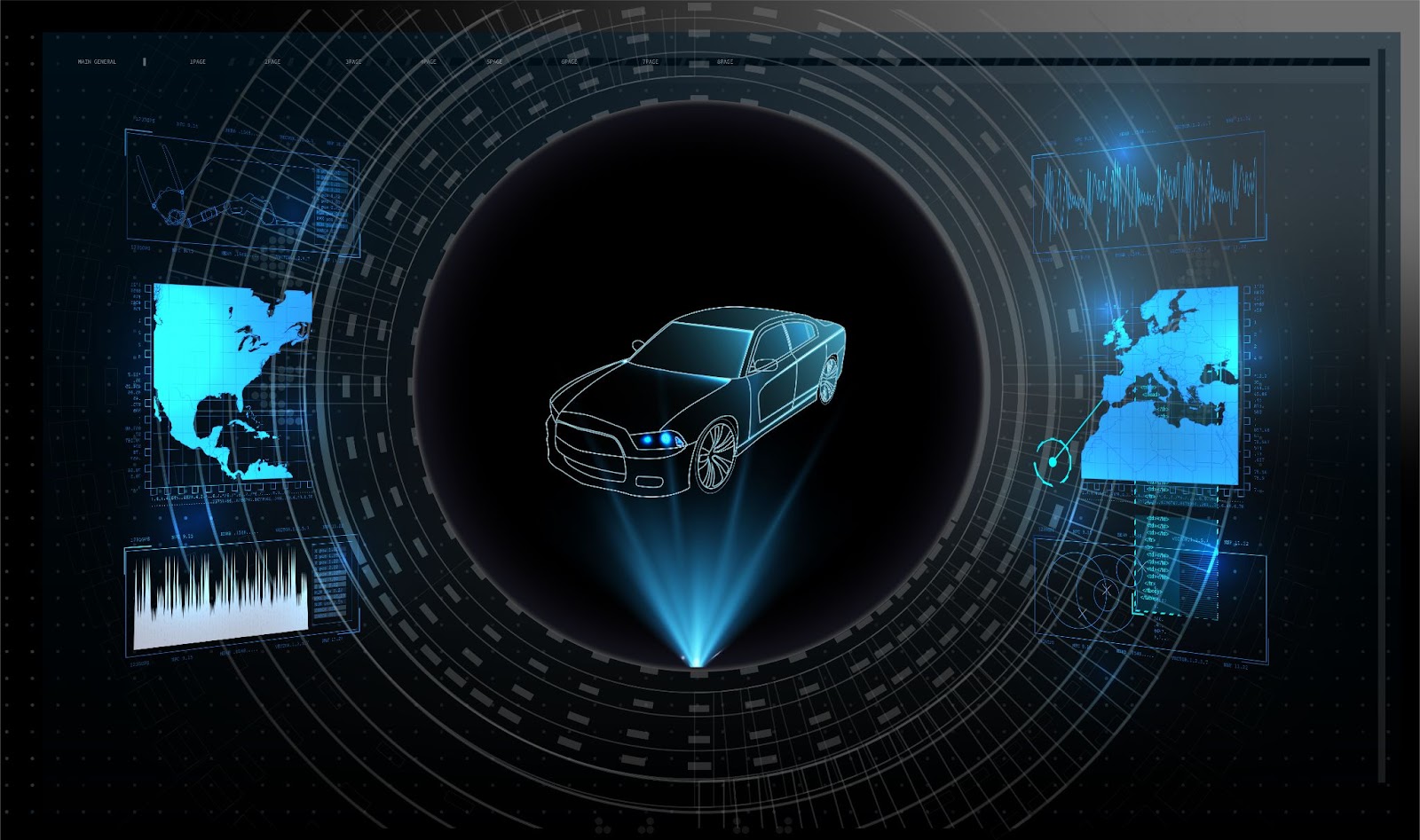
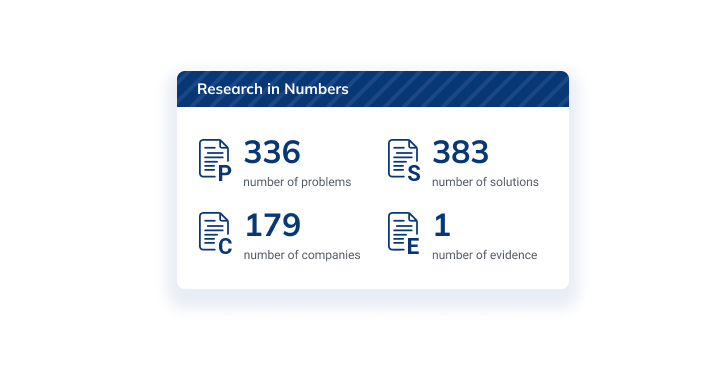
Revolutionizing the Automotive Industry through Blockchain and Car NFTs
Blockchain technology and Non-Fungible Tokens (NFTs) are emerging as pivotal innovations in the fast-evolving automotive industry. They offer solutions to some of the sector’s most persistent challenges.
With its decentralized and immutable ledger, blockchain promises to enhance transparency and efficiency in automotive supply chains. This technology can significantly reduce bottlenecks and improve traceability, covering areas such as:
- Components
- Manufacturing
- Sales
- Repairs
- Resale
Ultimately, this makes the entire supply chain more resilient to disruptions.
NFT Car: Redefining Vehicle Ownership and Management
In other news, car NFTs are redefining the concept of vehicle ownership and management. NFTs provide a secure and efficient method for certifying ownership and streamlining processes such as transferring vehicle titles and registrations. This transfer eliminates the redundant paperwork and delays currently affecting the industry.
The Synergy of Blockchain and Car NFTs
Blockchain and car NFTs aim to mitigate supply chain disruptions and transform how we own, operate, and engage with vehicles. These technologies make the automotive industry more transparent, efficient, and customer-centric, leading to a more seamless and satisfying ownership experience.
A Transformative Era for the Automotive Industry
Blockchain and NFTs are paving the way for a transformative era in the automotive industry. Their impact extends beyond theoretical potential to practical applications, promising to redefine efficiency, ownership, and user engagement. This pivotal shift sets the stage for an in-depth exploration of blockchain’s specific impact, promising to alter the automotive landscape fundamentally.
Blockchain’s Role in Automotive Innovation
The automotive blockchain market is undergoing significant transformation, with projections indicating it will grow to $5.61 billion by 2030. Advancements in North America and Europe, where innovation and investment flourish, drive this growth. Support for the expansion comes from:
- Advancements in Blockchain Technology: Spearheaded by industry-leading software companies.
- Increased Investment: A surge in funding towards technological development.
- Government Support: Initiatives that back the integration of blockchain in automotive applications.
- Startup Innovation: The dynamic contributions from startups such as Xain and NXM Labs.
These factors revolutionize automotive industry processes and transactions through immutability, transparency, and secure data management systems. Beyond enhancing supply chain logistics, blockchain strengthens vehicle data integrity. It promises:
- Improved operational efficiencies
- Cost reductions
- A boost in consumer trust and satisfaction
As blockchain continues integrating into the automotive sector, it paves the way for significant advancements. This technology is improving efficiencies and redefining security and transparency in automotive interactions, establishing a new standard for innovation.
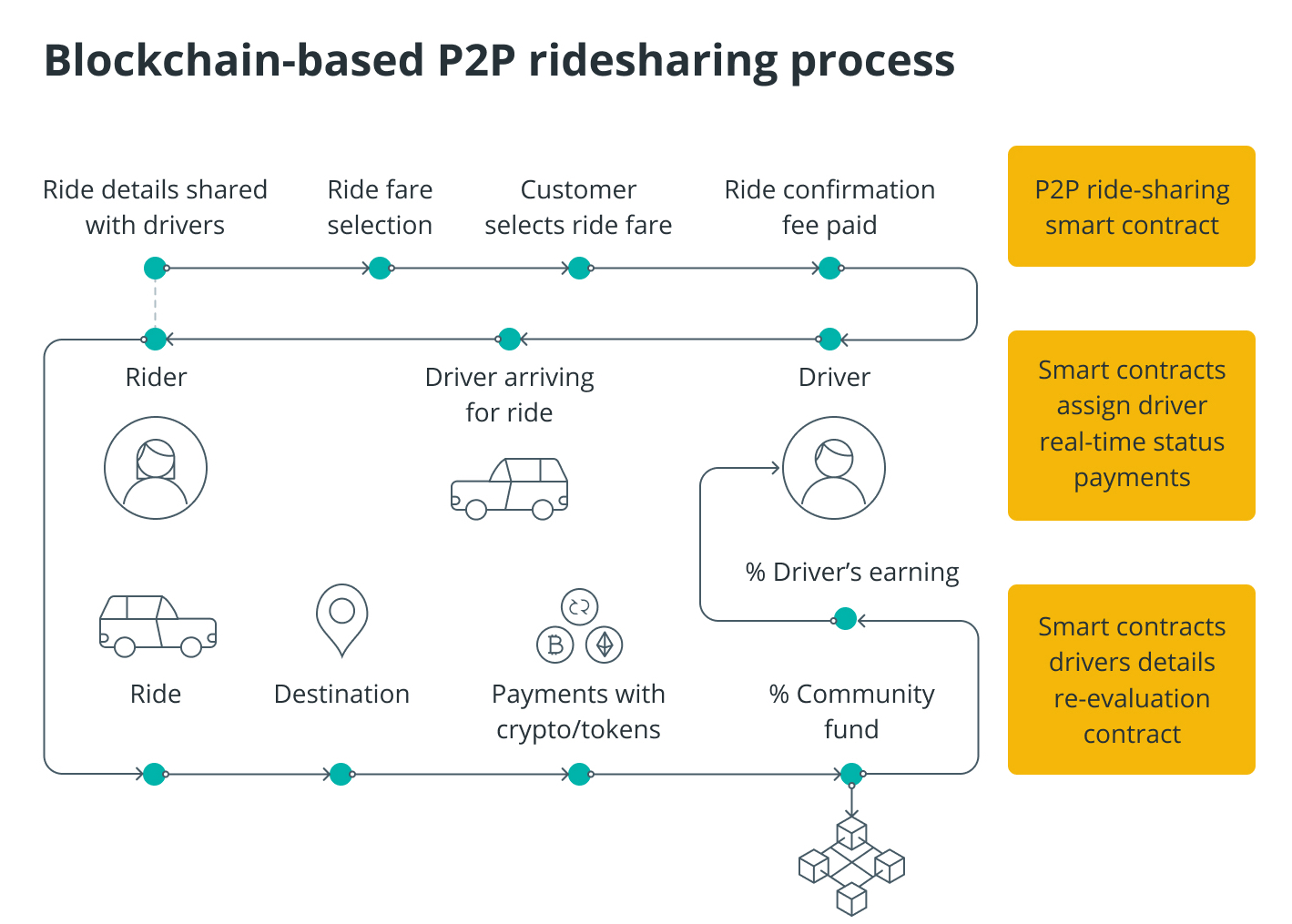
Blockchain Enhancements in the Automotive Industry
Blockchain technology is carving a niche in the automotive industry with its ability to provide unparalleled transparency and traceability. This technology tracks components from manufacture to sale, even through repairs and resale. By doing so, it streamlines operations and minimizes the risk of counterfeit parts entering the market. These features ensure the authenticity and quality of automotive components.
Payment Solutions through Blockchain
In payment solutions, blockchain facilitates secure, transparent, and efficient transactions. It uses smart contracts to automate and record payments on an immutable ledger. This process:
- Simplifies transactions
- Reduces fraud
- Enhances cash flow management
- Digital Identities for Vehicles
Blockchain revolutionizes vehicle identification by introducing digital identities. These digital passports store essential information, including ownership history and service records. This advancement simplifies vehicle registration and transfer of ownership. It also offers a tamper-proof record, improving security and trust in the automotive ecosystem.
Through these applications—supply chain management, payment solutions, and digital identities—blockchain is set to reshape the automotive industry. It addresses significant challenges, offering innovative solutions for a more transparent, efficient, and secure industry.
Blockchain’s Impact on the Automotive Industry
Blockchain technology is ushering in a new era for the automotive sector. It has improved efficiency and data security. It also supports self-driving cars. This pivotal technology is at the forefront of transforming automotive operations. It sets a new standard for managing and utilizing data within the industry.
Blockchain technology significantly:
- Boosts the automotive industry’s efficiency
- Enhances data security
- Supports the development of self-driving cars
It dramatically improves supply chain operations by eliminating errors and discrepancies. This precision saves time and reduces costs linked to supply chain inaccuracies.
Data security sees a revolutionary shift with blockchain. Its decentralized nature distributes data across many computers, complicating unauthorized access. This security level is crucial as the industry leans more on digital technologies. It protects sensitive data, from customer details to proprietary designs.
Blockchain is invaluable for autonomous vehicle development. It provides a secure infrastructure for the vast data exchanges necessary for these vehicles to function, including the following shared securely across an immutable network:
- Real-time traffic updates
- Environmental conditions
This infrastructure speeds up the development of self-driving cars. It also enhances their reliability and safety. This step is vital for their broader acceptance and use.
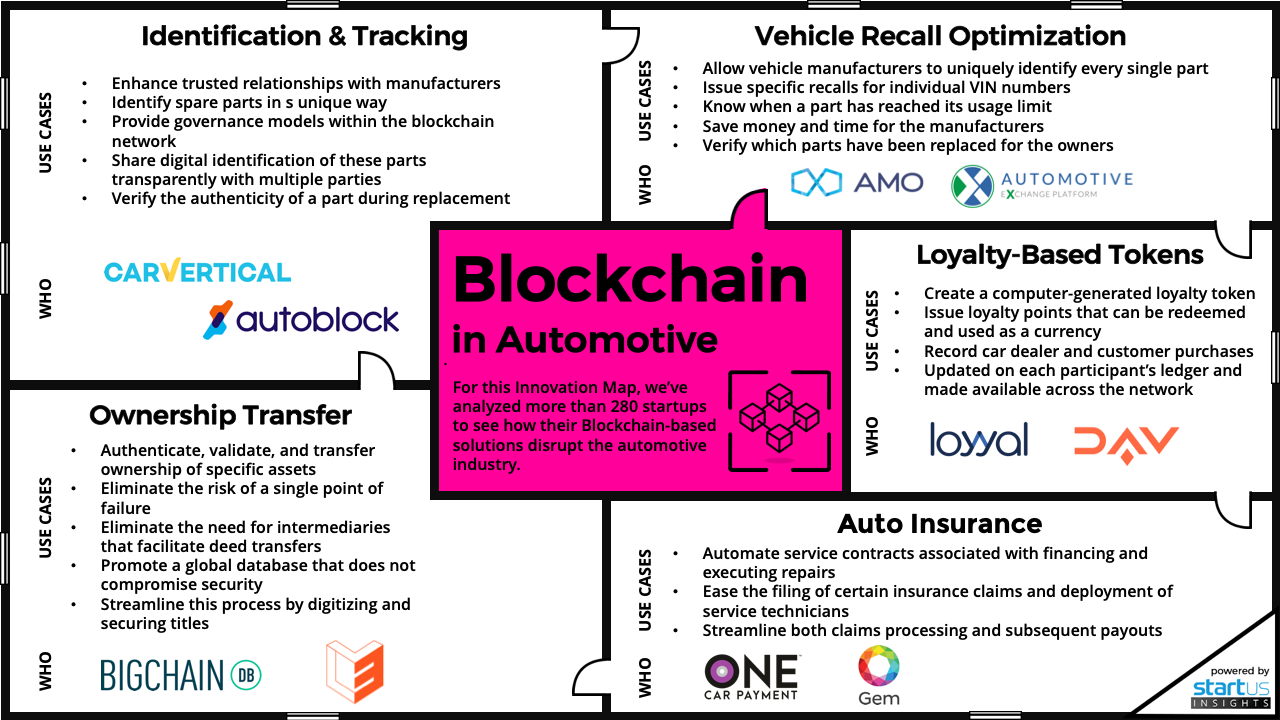
Navigating Challenges | Blockchain’s Path in the Automotive Industry
Blockchain technology is making strides in the automotive industry. However, it faces hurdles that challenge its broader adoption and implementation. These challenges highlight the difficulty of integrating this innovative technology into an established sector. Each of the following issues presents unique obstacles. Obstacles that require careful navigation to harness blockchain’s full potential. Addressing these concerns is about more than overcoming technical and financial barriers. It’s about shaping a future where blockchain can thrive within the automotive industry. It must offer innovative, compliant, scalable, cost-effective, and well-understood solutions by all stakeholders.
Addressing GDPR Compliance
The unchangeable nature of blockchain poses challenges for GDPR compliance. Specifically, this relates to the regulation’s right to erasure. Data cannot be altered or deleted within a blockchain, creating a legal challenge. Solutions need to balance blockchain’s integrity with GDPR’s flexibility demands. Innovations are necessary to ensure blockchain can maintain its benefits. They must do so without violating privacy rights under GDPR.
Overcoming Scalability Issues
Scalability is a major hurdle for blockchain in the automotive industry. As the industry grows, blockchain networks must process more transactions and data. However, many blockchain systems face issues with scalability, leading to slower transaction speeds and higher costs. Solving these scalability challenges is essential for blockchain to benefit the automotive sector fully.
Reducing Costs
The high costs of setting up and maintaining blockchain technology deter its adoption, especially among smaller companies. The initial setup includes infrastructure and specialist expertise, which are financially demanding. Additionally, the evolving nature of blockchain means ongoing costs for updates and security enhancements.
Creating more cost-effective blockchain solutions is vital for broader adoption across the automotive industry.
Enhancing Education and Awareness
A significant knowledge gap exists around blockchain technology within the automotive industry. Both professionals and consumers need a better understanding of the following:
- How blockchain works
- Its potential benefits.
Educational programs and clear communication can bridge the gap between blockchain and the automotive industry. Enhancing blockchain literacy will accelerate its adoption and enable the industry to capitalize on its advantages.
NFTs Driving Transformation in the Automotive Industry
Integrating Non-Fungible Tokens (NFTs) with the automotive industry marks a significant shift. It introduces new ways of digital ownership and user interaction. The rise of the metaverse offers fertile ground for NFT applications. It profoundly impacts the automotive sector. NFTs provide unique opportunities for brands and consumers to connect in ways previously unimagined in this emerging space.
As the metaverse expands, it paves the way for NFTs to play a pivotal role in the automotive world. These digital assets, each distinct and secure, allow for unprecedented interactions. Two examples of what consumers can now do with NFTs are:
- Own digital versions of classic cars
- Gain access to exclusive virtual automotive events
This new form of ownership and engagement reshapes the relationship between automotive brands and their audiences.
The growth of this market is rapid, fueled by a growing acceptance of digital assets and the automotive industry’s push for innovation. Car NFTs serve as a bridge between the tangible and the virtual, opening up new possibilities.
NFTs Elevating Automotive Collectibles, Asset Management, and Virtual Showrooms
NFTs are revolutionizing the world of collectibles in the automotive industry. They turn traditional memorabilia into digital assets. This shift offers automotive enthusiasts a novel approach to collecting. Fans can now acquire, trade, and possess exclusive digital content—this content links to their preferred vehicles and automotive brands.
Digital collectibles range from rare car designs to exclusive brand content. Each NFT is unique, providing a secure way to verify ownership. This digital transformation allows enthusiasts to showcase their collections in the virtual world. It also opens up new avenues for interactions within the automotive community. NFTs are redefining what it means to be a collector in the digital age. They blend passion for cars with the latest in blockchain technology.
Vehicle Asset Management
NFTs are transforming the way we manage and own vehicles. They offer a secure method to document and verify a car’s history, including:
- Ownership
- Maintenance
- Incidents
This digital approach ensures that every vehicle journey detail is transparent and tamper-proof. When someone buys or sells a car, they can transfer ownership of its NFT seamlessly and securely; this builds trust by providing clear, indisputable records.
NFTs make it easier for buyers to access a vehicle’s history, enhancing the purchasing experience. They solve many challenges in vehicle asset management. NFTs also ensure that records are both accessible and accurate.
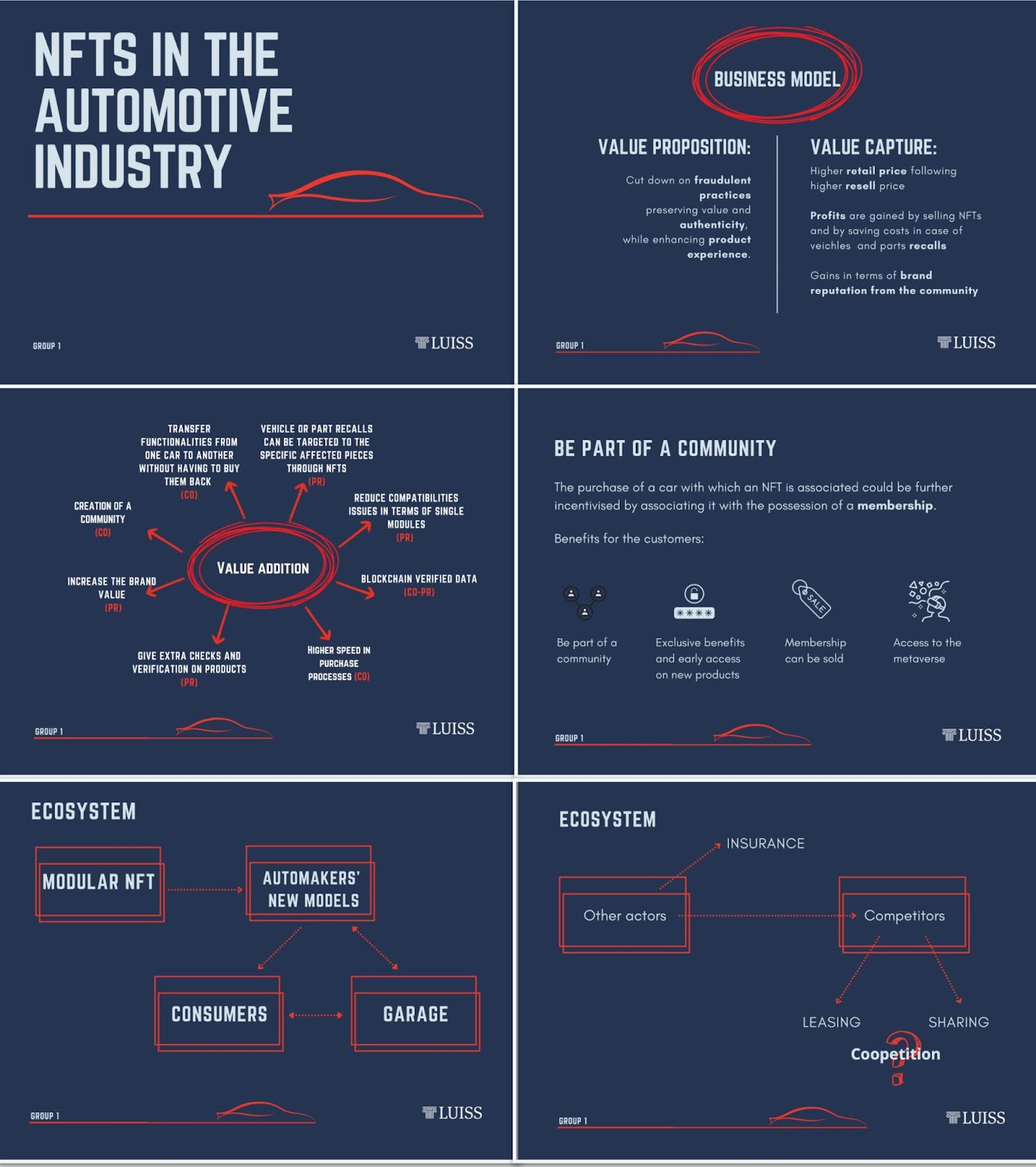
NFTs Enhancing Customer Experiences through Virtual Showrooms
NFTs are revolutionizing customer experiences in the automotive industry with virtual showrooms. Virtual showrooms allow customers to explore and customize vehicles in an immersive environment.
Automotive brands are using NFTs to create unique digital car models. Customers can interact with them online. These interactions enhance the shopping experience and allow for a deeper level of customization. Users can modify the following in real time:
- Features
- Colors
- Accessories
The vehicle’s unique NFT then records their choices. This innovative use of technology makes car shopping more engaging and personalized. It bridges the gap between online browsing and the tangible experience of visiting a showroom. NFT-powered virtual showrooms are setting new standards for customer interactions and overall satisfaction.
Boosting Automotive Innovation and Engagement with NFTs
Non-fungible tokens (NFTs) are a valuable asset in the evolving automotive industry. They enhance efficiency and customer engagement. NFTs enable secure and efficient teamwork. They speed up the design and testing of new automotive technologies.
In marketing, NFTs offer creative ways to attract and engage customers. They provide unique ownership experiences and exclusive content. NFTs improve interactions between automotive brands and their audiences. They make these interactions more personal and engaging.
NFTs are transforming the automotive sector by making it more innovative, customer-focused, and efficient.
Efficiency in R&D and Marketing
NFTs are making significant strides in enhancing efficiency within research and development (R&D) and marketing in the automotive industry.
In R&D, NFTs facilitate secure and streamlined collaboration across teams and borders. NFTs ensure that the development and testing of new automotive designs and technologies is faster than ever.
On the marketing front, NFTs are introducing innovative strategies to engage customers. They offer exclusive digital content and experiences for consumers. These digital offerings deepen brand loyalty and attract new customers.
NFTs open new avenues for customer engagement through a unique blend of ownership and interaction, setting automotive brands apart. It fosters a more connected, immersive relationship with their audience. NFTs are proving to be a game-changer in the automotive sector. They drive efficiency and innovation through these applications.
Improvements in Customer Engagement
NFTs are transforming customer engagement in the automotive industry. NFTs offer unique ownership perks and exclusive digital content. These digital assets allow customers to own a piece of their favorite automotive brand’s legacy. For instance, owning an NFT can grant access to things such as:
- Access to special events
- Behind-the-scenes tours
- Limited-edition merchandise
This exclusivity enhances the customer experience and builds a deeper connection between brands and their audiences. Automotive companies can utilize NFTs to do the following:
- Personalize interactions
- Make customers feel valued
- Enhance the customer journey through exclusive communities
The result is a stronger brand loyalty and a more engaged customer base. Automotive brands are using NFTs to interact with and reward their customers, leading to significant improvements in customer engagement.
Navigating the Challenges of NFT Integration in the Automotive Industry
Integrating Non-Fungible Tokens (NFTs) into the automotive industry presents opportunities and risks. The financial burden of setting up and maintaining NFT infrastructure can be significant. There are also legal challenges, including issues related to copyright and ownership. There’s a clear need for education about NFT technology among consumers and stakeholders.
These factors are critical for automotive brands that wish to adopt NFTs effectively. Overcoming these challenges is essential to harness the full potential of NFTs. Otherwise, you could face legal issues or customer pushback. As we examine these risks, strategic planning and careful consideration are crucial to success in the NFT space within the automotive sector.
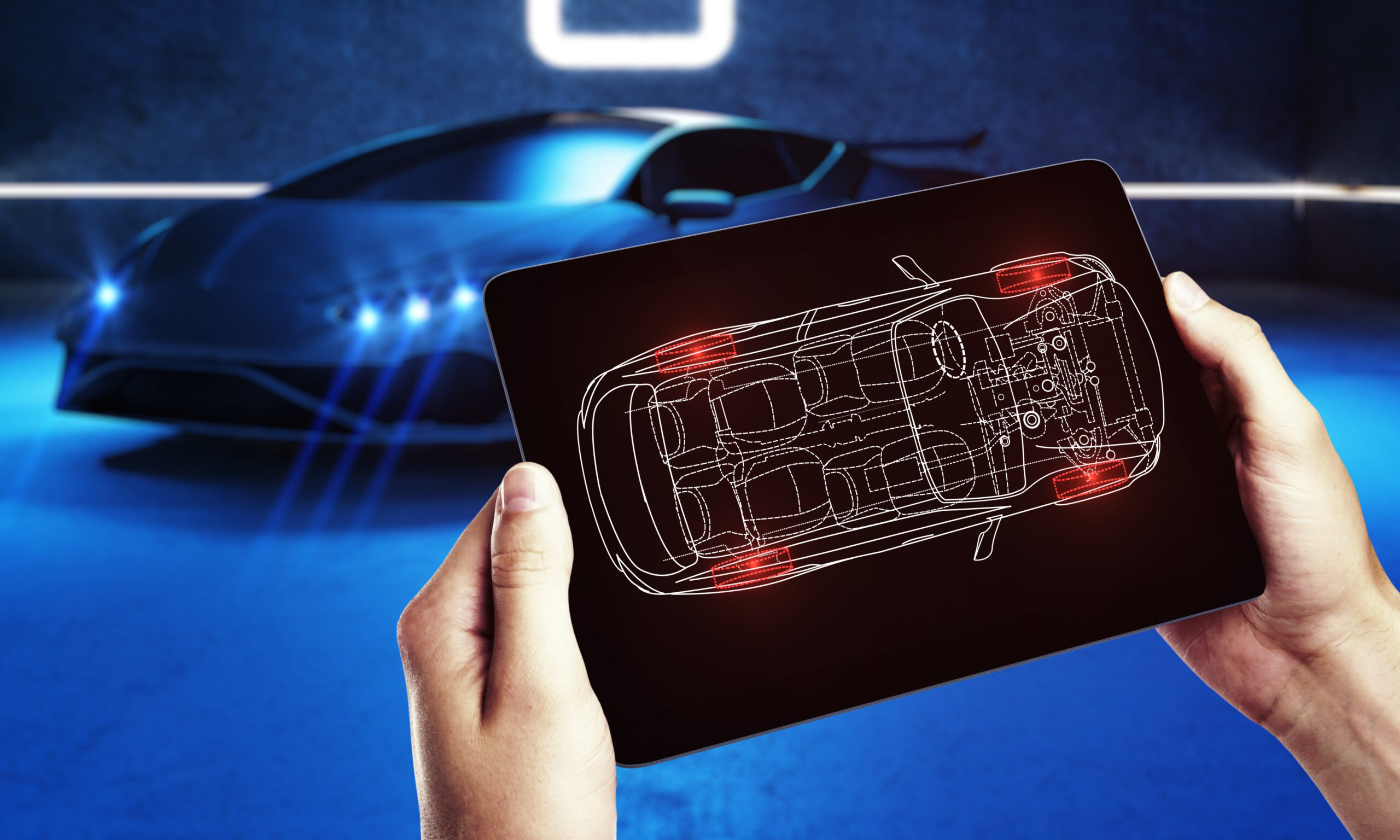
Infrastructure Costs
The first risk of NFTs and the automotive sector comes with high initial and ongoing costs. Setting up the necessary technology for NFTs requires a significant investment. Companies need to pay for both software and hardware. They also need to hire experts to develop and maintain these systems. After launching, there are costs for the following:
- Keeping the system secure
- Updating the systems
- Managing the systems daily
These efforts keep the NFT platform running smoothly and securely.
Automotive companies must also spend money integrating NFTs with their current digital systems. These integrations may look like updating or creating new systems to work well with NFT technology.
Despite the benefits, the high costs make some companies think twice about using NFTs. Any automotive business needs to weigh these costs against the potential benefits before moving forward with NFT technology.
Legal Frameworks of Car NFTs
Navigating the legal landscape of NFTs presents challenges for the automotive industry. The unique nature of NFTs raises questions about copyright and ownership rights. For instance, owning an NFT linked to a digital image of a car doesn’t necessarily grant ownership of the car’s design or the image itself. This distinction can lead to confusion and legal disputes.
On another note, the regulatory environment for NFTs is still evolving. Laws and regulations that govern digital assets like NFTs vary by country and are subject to change. This variability adds a layer of complexity for automotive companies operating internationally.
Compliance is another critical issue. Companies must ensure that their NFT practices adhere to existing laws. These laws cover digital assets, consumer rights, and data protection. Requiring companies to thoroughly understand the legal framework in each market they operate in.
As a result, automotive companies looking to leverage NFTs must stay informed about legal developments. They also need to invest in legal expertise to navigate these waters successfully.
Despite these challenges, NFTs can potentially transform customer engagement and product offerings. Forward-thinking companies in the automotive sector should explore this avenue.
Need for User Education
The automotive industry’s successful adoption of NFT technology heavily relies on consumers’ and stakeholders’ understanding and acceptance. A significant challenge lies in the general need for familiarity with NFTs and how they operate. Many consumers are unaware of the benefits NFTs can bring to vehicle ownership and the overall automotive experience. This knowledge gap can hinder NFTs’ widespread acceptance and use within the sector.
To address this challenge, automotive companies must prioritize education and awareness campaigns. These initiatives could include detailed guides on the following:
- Advantages of NFTs
- How they work
- Their potential to enhance the automotive experience
Other marketing techniques that could play a crucial role in demystifying NFT technology are:
- Webinars
- Workshops
- Live demonstrations
Clear communication on the following is essential:
- Security and practicality of using NFTs for vehicle purchases
- Ownership transfers
- Accessing exclusive content
Automotive companies can build a more informed consumer base by investing in user education. This investment will facilitate a smoother transition to NFT adoption. It will also ensure that consumers feel confident and engaged with this new technology.
Bridging the Gap Between the Physical the Digital
Physical Backed Tokens (PBTs) are a key innovation in the rapidly evolving automotive industry. They are reshaping the way we think about vehicle ownership and interaction. PBTs offer a unique solution by linking the physical presence of vehicles with their digital identities. This connection enhances data transparency. The connection also significantly strengthens bonds within the vehicle owner community.
PBTs function by encoding the details of a vehicle into a digital token, details such as its:
- Ownership History
- Specifications
- Maintenance records into a digital token
This token is directly associated with the physical vehicle, providing a secure and immutable record of its life. This digital proof of ownership simplifies many aspects of automotive management. It makes the transfer of ownership smooth. It also verifies the authenticity of parts. It ensures that service histories are accurate and tamper-proof.
The impact of PBTs goes beyond streamlining administrative processes. They forge a tangible link between digital assets and physical vehicles. This link opens up new possibilities for engagement and interaction. Vehicle owners can now participate in a digital ecosystem that mirrors the physical world. Their ownership is not just a matter of paperwork but a part of their digital identity.
The automotive industry is integrating PBTs, creating a seamless experience where the digital and physical can coexist. This integration promises to make vehicle ownership more transparent, secure, and connected. As we continue to navigate this digital transformation, PBTs are leading the way in bridging the gap between physical assets and their digital counterparts. They herald a new era of automotive innovation and community.
Blockchain, NFTs, and PBTs | Revolutionizing Automotive Ownership
Blockchain and Non-Fungible Tokens (NFTs) are transforming the automotive industry. They bring transparency and efficiency and introduce a new way of owning and interacting with vehicles. These technologies simplify the supply chain and create secure ownership experiences.
Physical Backed Tokens (PBTs) further advance this change. They link physical cars to digital identities, making ownership clear and community connections strong. This shift towards digital innovation promises a future where the automotive sector is more connected, innovative, and focused on the consumer.

